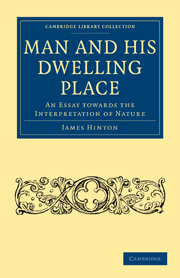CHAP. I - OF THE FACT OF HUMAN LIFE
Published online by Cambridge University Press: 29 August 2010
Summary
As seeing that which is invisible.
THE views which have been suggested have an evident bearing on the regulation of our life. Our action should correspond to reality and not to a false impression. If therefore man's feeling in respect to the world in which he is be erroneous, it is a necessary consequence, that principles of action based on that feeling should mislead: if we are under illusion, only by escape from that illusion can we hope wisely to conduct our life. Nor is evidence wanting that man does need, for practical purposes, a truer knowledge than he has hitherto brought into exercise. Man fails in his dealings with the world. Not in respect to his action upon phenomena: of these, so far as he knows and obeys their laws, he proves himself the master. He can use the physical world for his purposes, but he fails to conform himself truly to the nature of things: there is a want of accord between himself and Nature, of which he bitterly rues the consequences. Evidently he goes wrong, incurs disappointment, runs into evil while seeking good.
Therefore it were an unquestionable practical gain to recognise the illusion under which we have been in respect to the world, even if we could know no more. From innumerable mistakes it might save us, of treating that as the true reality, which is not; or of suffering ourselves to think of that as truly good or evil, which we do but feel so. But this is not all.
- Type
- Chapter
- Information
- Man and his Dwelling PlaceAn Essay towards the Interpretation of Nature, pp. 277 - 281Publisher: Cambridge University PressPrint publication year: 2009First published in: 1859



